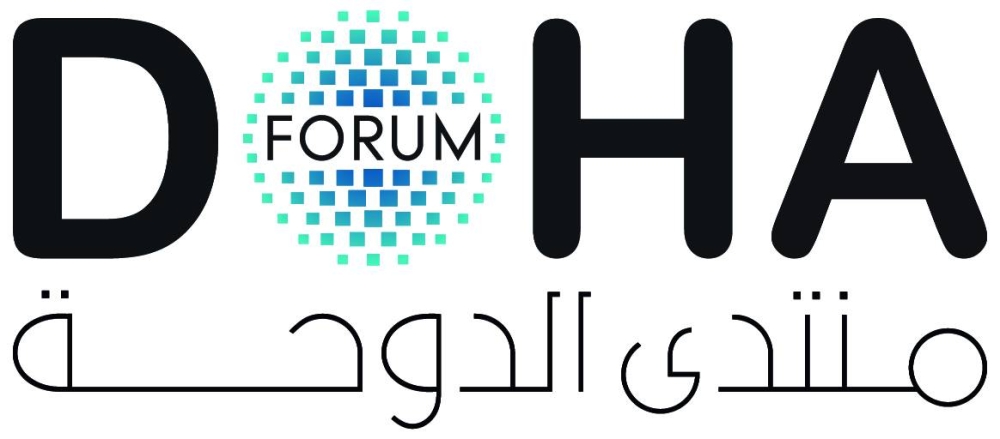The seventh Doha Forum on Democracy, Development and Free Trade and the eighth edition covered a wide range of issues related to the Arab world, including politics, development, security, free trade, information, culture, education, modern technology, and globalization, and their roles in introducing economic growth and democratic change into the region. The two editions also dealt with visions about the present and future, global stability and security, development projects, modern trends and future transformations, common markets, and others.
The 9th Doha Forum 2009 saw politics being separated from economics with the forum held in parallel with the Enriching the Middle East's Economic Future Conference. During that edition, the Doha Agreement was hammered out between the Republics of Sudan and Chad, a deal that paved the way for the normalization of relations between the two countries, and created an atmosphere of trust for further negotiations and cooperation. This edition and the subsequent one covered topics such as society, media, and democracy, while the conference discussed issues related to global development, economy, trade, and investment.
The 11th and 12th editions mainly focused on the Arab Spring revolutions and the political reform mechanisms amid the historical events that were sweeping the region at the time, particularly enriching the economic future of the Middle East. The deliberations also touched on the necessity to reform international organizations, such as the UN, and the role they can play in development at the national level, as well as the global political scene and transformations in the Middle East, the economic reasons behind discontent, digital media and satellite channels, and the US stance on the then developments in the Middle East.
Given the crucial political, economic, social, financial, strategic and human issues in a region witnessing the most important changes in its contemporary history high on its agenda, the two editions saw a surge of participants from nearly 100 countries in each edition. The attendees discussed the absence of the concept of citizenship in light of ethnic and racial pluralism, foreign hegemony, the Wests bias towards the Israeli entity, in addition to the future of peace in the Middle East, political changes and civil rights in the region, the role of the media in change, the challenges facing democracy in the Arab Spring countries, the challenges facing new democracies in the Middle East, the importance of institutional reform in the post-Arab Spring era, and the challenges and opportunities posed by digital media between acts of cyber warfare and digital diplomacy.
During its16th edition, the three-day Doha Forum discussed ways to achieve regional and global stability and prosperity amid key challenges facing todays world in the fields of defense, security, economy, energy, and civil society issues. The 17th Doha Forum, themed ''Development, Stability, and Refugee Issues'', discussed ways to achieve regional and global stability and prosperity and confront the challenges obscuring world stability, especially with the armed conflicts, terrorism, extremism, poverty, and unemployment hitting the region and the world prompting the need for thorough discussions of the roots of these issues and ways to reach the peoples' aspirations for development, stability, justice and human peace in its economic, environmental and societal dimensions.
The 18th Doha Forum, under the theme "Policy-Making in an Interconnected World", launched a new visual identity and devised new partnerships with a group of prestigious international institutions concerned with policies around the world. This edition's logo was designed to enhance and unify its identity and strengthen its global presence and reputation in the field of policy formulation. The logo also reflected the efforts made to consolidate Doha Forum's position at the forefront of global policy making, promote vital dialogues, and benefit from the diverse backgrounds and experiences enjoyed by the participants and speakers.
The Doha Forum 2019 saw the launch of Doha Forum: Youth Edition, in cooperation with the Qatar Debate Center with over 3,000 participants at that time from worldwide discussing and submitting recommendations on the topics on its agenda.
Following the Covid-19 pandemic crisis, Doha Forum convened in March 2022, under the theme "Transforming for a New Era", with a focus on four basic areas: geopolitical alliances and international relations, the financial system and economic development, defense, cybersecurity, food security, and sustainability and climate change. For the first time in its history, this edition included a special version of the "Global Reboot" podcast, which was produced in partnership with Foreign Policy magazine, and hosted global leaders and prominent partners. It also witnessed the presence of more than 4,000 guests, including over 300 speakers from 117 countries who participated in more than 80 sessions, round tables, interactive exhibitions and media meetings over two days.
On Dec. 10 and 11, the 21st Doha Forum will be held at the Sheraton Hotel, themed "Building Shared Futures", bringing together political leaders, heads of government and ministers from various countries of the world, staging an opportunity to exchange opinions, ideas and constructive dialogue. This year's event will host new partners from Latin America and East Asia in order to expand the base of discussions, and it will highlight four main axes - International Relations and Security, Economic Policy and Development, Cyber Security, Data Privacy, and Artificial Intelligence, Sustainability.
The event will also feature expanded discussions on the latest developments in the region, especially in the Palestinian territories and the Gaza Strip, as well as current regional and international issues.
This year's forum will include 18 main sessions and dialogue sessions, 35 side sessions, in addition to round tables and workshops.(QNA)

